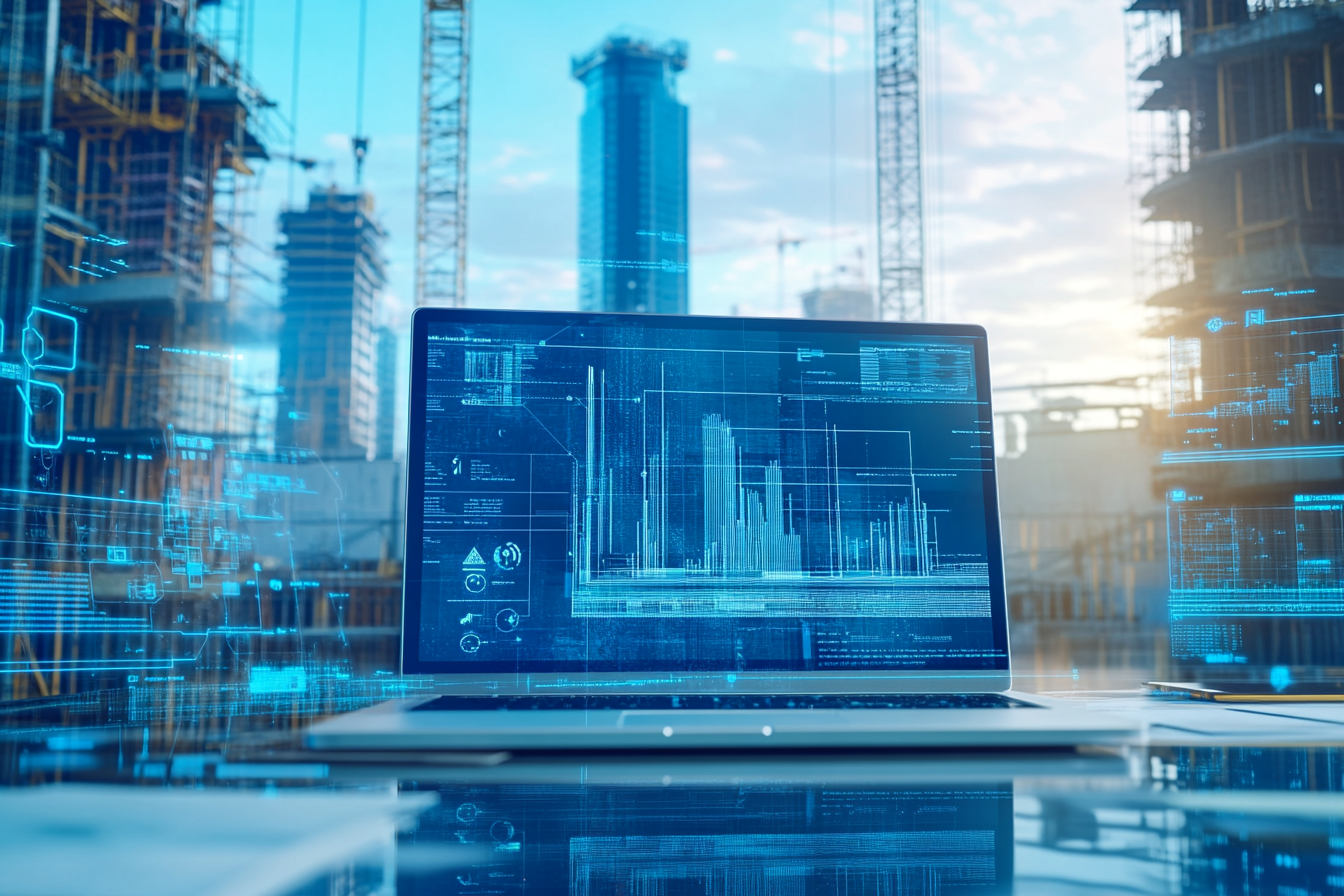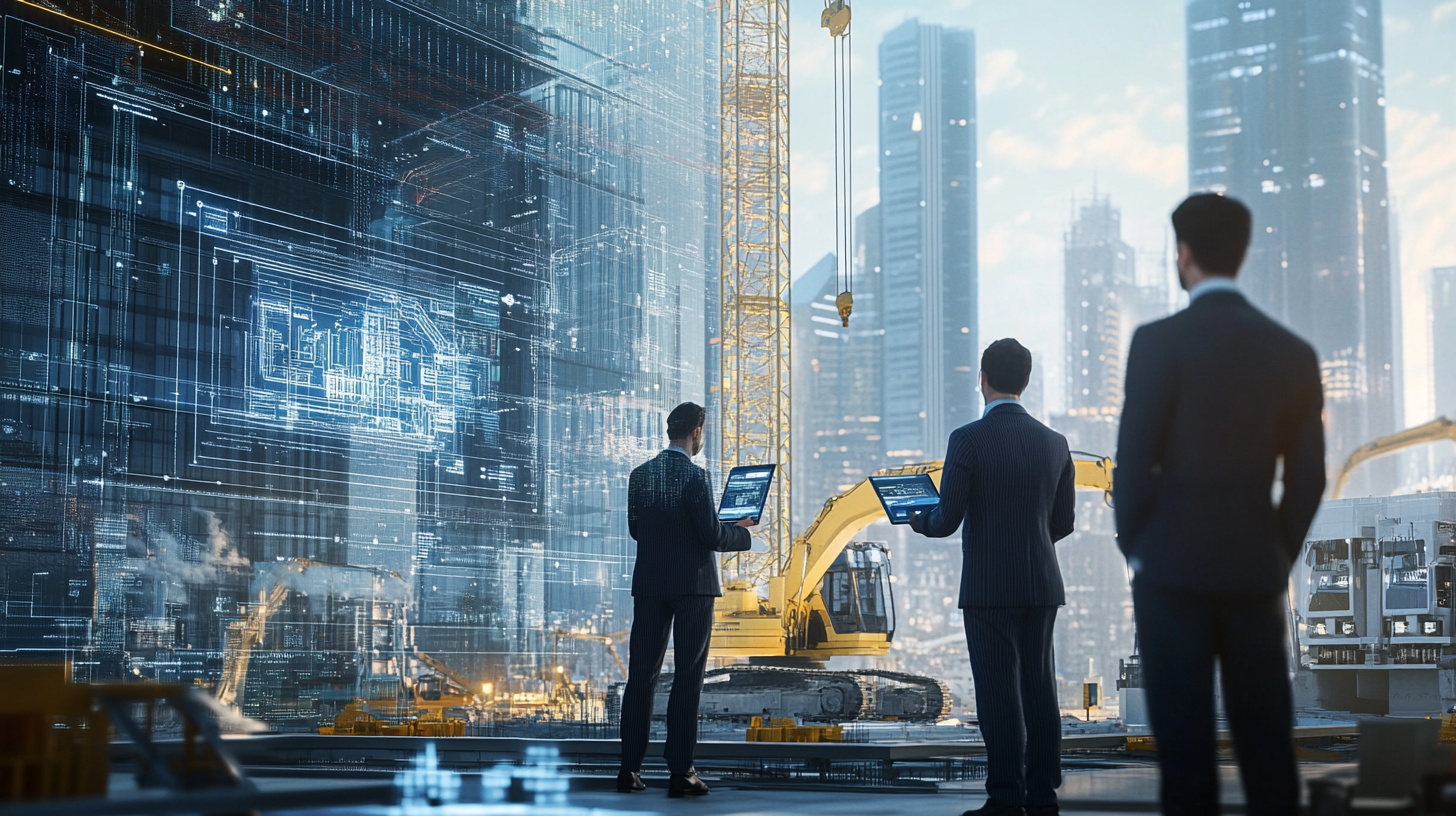Innovative AI Applications in the Construction Industry
24 June , 2024 11:55 AM
Those working in the construction industry are aware of the challenges associated with time-consuming and complex problems that can arise in each project. This is not merely an inconvenience for construction companies; it is also a burden for clients. Both companies and clients are seeking new ways to create mutually beneficial and profitable outcomes such as implementing AI software to improve efficiency and save time.
Traditional construction practices and processes restrict their ability to do so. However, there has been a notable increase in the adoption of innovative applications of artificial intelligence (AI) in the construction industry. AI has enabled business owners to enhance efficiency, productivity, and safety. Similarly, AI has enabled clients and customers to access precise and real-time data for making well-informed decisions.
The advantages of AI in the construction industry
Artificial intelligence (AI) has a multitude of applications in the construction industry. AI-driven robots and drones can be utilised for site inspections, enabling real-time monitoring of construction sites and the detection of defects or anomalies. Furthermore, AI chatbots can be utilised to provide customer support and facilitate seamless communication between clients, architects, and contractors. Additionally, AI-powered predictive maintenance can assist in predicting equipment failures and scheduling maintenance tasks, thereby reducing downtime and improving overall project timelines.
1. Risk Management
The initial application of AI in the construction industry is risk management. The construction industry stands to gain considerably from the deployment of AI-powered risk management solutions. The use of AI-powered predictive analytics allows for the identification of potential risks and threats to projects before they commence, including labour shortages, supply chain disruptions and budget overspends.
Furthermore, AI tools can be utilised to identify any risks and vulnerabilities in construction contracts, thereby protecting against potential financial losses, litigation and penalties. By leveraging AI softwares in risk management, efficiency, cost reduction and improvements to which improved project quality and safety can be achieved. Construction contract management AI tools in the UK can be consulted for identifying project site and contractual risks.
2. Predictive Maintenance
Another area where AI is being used in the construction industry is predictive maintenance. The application of AI-assisted predictive maintenance represents a transformative approach to the maintenance of buildings and infrastructure, enabling the early detection of potential issues and the prevention of major problems. AI-powered predictive maintenance enables the analysis of data from a variety of sources to identify patterns and anomalies that may indicate potential failures.
This grants the ability to perform proactive maintenance, thereby reducing downtime and the costs associated with unexpected repairs. AI can be used to optimise maintenance schedules, prioritise tasks based on urgency, and provide real-time insights to construction teams. This allows you to make data-driven decisions and improve building efficiency, productivity and safety for workers.

3. Quality Control
Another area in which AI is being used in the construction industry is quality control. The use of AI for quality control in the construction industry has transformed the way construction projects are managed and monitored. AI-powered tools can be used to analyse vast amounts of data, including blueprints, project schedules and real-time sensor data, in order to identify potential quality control issues before they become major problems.
AI algorithms can assist in the detection of anomalies and inconsistencies, enabling the implementation of corrective action at an early stage and the prevention of costly rework or downtime. Furthermore, AI-powered drones and robots can be utilised to conduct remote inspections of construction sites, thereby reducing the necessity for physical inspections. Leveraging AI can significantly enhance efficiency, reduce costs, and guarantee projects are completed on time and meet the required quality standards.
4. Safety and Security
Another potential application of AI in the construction industry is the assurance of safety and security. The construction industry stands to gain considerably from the integration of artificial intelligence (AI) in enhancing safety and security. AI-powered technologies, including drones, sensors and cameras, can be utilised to monitor construction sites in real time. This allows potential hazards to be identified and workers and the relevant authorities to be alerted in the event of an emergency. Furthermore, AI-driven predictive maintenance allows for the identification of potential equipment failures before they occur, thereby reducing the risk of accidents.
Additionally, AI-powered analytics can assist in the tracking and analysis of worker behaviour, enabling the identification of high-risk activities and the improvement of overall site safety. AI-powered access control systems can also facilitate the assurance that only authorised personnel have access to restricted areas. By leveraging these technologies, a notable reduction in accidents, an enhancement of worker safety, and an overall improvement in site security can be achieved.

5. 3D Design and Modelling
Another area in which AI is being used in the construction industry is for 3D design and modelling. This can be achieved through the use of AI-powered building information modelling (BIM) software. It enables architects and engineers to create detailed digital models of buildings and infrastructure projects, streamlining the design and construction process.
AI allows for more precise planning, reduced errors, and increased efficiency in creating 3D designs and models. AI can be used to automate tasks such as detecting clashes between different components, optimising building layouts for energy efficiency, and generating realistic renderings of buildings. As a result, construction projects can be completed faster, at a lower cost, and in a more sustainable manner.
6. Contractual Agreements and Compliance
One final area in which AI can be deployed in the construction industry is in the creation of contractual agreements and the monitoring of compliance. The construction industry in the UK is subject to a multitude of compliance and regulatory requirements. Failure to ensure such compliance may result in suspension or closure of your construction project, as well as imposition of penalties. Artificial intelligence can be used to ensure that all compliance and regulatory standards are met with precision. Artificial intelligence (AI) can be used to streamline the creation and management of contracts reducing the time spent with human resource on this task in turn reducing costs.
Furthermore, AI tools can be utilised for the comparison of construction contracts within your projects. AI-powered contract generation tools can be employed to analyse industry-standard templates, identify relevant clauses and terms, and generate bespoke contracts in a matter of minutes. This can considerably reduce the time and effort required to draft contracts, allowing contractors and customers to focus on higher-value tasks. Construction contract management companies in the UK can be contacted to obtain intelligent tools for the creation of construction contracts and the assurance of compliance.
Maximise your construction business potential with the power of AI
There are numerous ways in which your construction business can grow by leveraging the potential of artificial intelligence (AI). Implementing AI-powered project management software enables real-time monitoring and tracking of projects, allowing for improved accuracy, efficiency, and reduced costs. This not only facilitates business growth but also provides customers with peace of mind. Access AI-powered tools and solutions today to enable the ultimate growth of your business!
